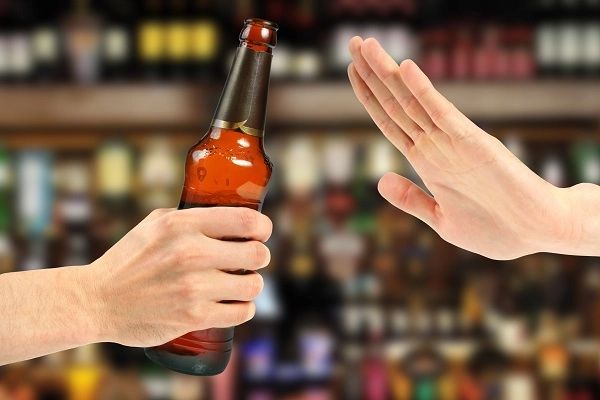Drynuary: What is it? Should you do it?

As we usher in the New Year, you may be thinking about resolutions — unhealthy habits you hope to leave behind and healthy ones you plan to adopt. One popular trend is called Drynuary, a monthlong, no-alcohol challenge, also dubbed Dry January or No-Drink-January.
Why participate?
Whether you want to practice self-regulation or contribute toward a charitable cause, there are many reasons to consider taking the 31-day challenge. Some people participate in order to create solidarity with friends combatting alcoholism. Others strive to improve their health. Charities encourage participants to donate what they might have spent on alcohol to causes like breast cancer research and addiction recovery.
Experts are somewhat divided on encouraging Drynuary. For most social drinkers, experts agree it’s a great way to cleanse the negative effects of alcohol and the indulgent expense of buying all those swanky drinks over the holidays. For long-term, daily, heavy drinkers, it could cause some dangerous health effects.
Health benefits
The primary benefit from participating in Drynuary is that it provides time to learn more about your relationship with alcohol. Most people discover when they want to drink and why. Social drinking has become such a common way to interact that knowing more about your own behavior may help you be more conscious of your decision whether or not to drink.
In addition, people who stop drinking for the entire month may also experience:
- Weight loss
- Improved liver function
- Reduced diabetes risk
- Better sleep
- Clearer thinking
- Less craving for alcohol
Studies show that those who participate in Drynuary are less likely to get drunk frequently in the next six months. A permanent change to overall drinking behavior can lead to long-term health benefits.
Considerations
Drynuary is not for those with alcohol dependency issues because it can cause withdrawal or other complications — from mild anxiety and shakiness to seizures or even death.
Experts also caution against swinging back to heavy drinking in February after your body has lost its alcohol tolerance. The reintroduction of alcohol should be thoughtful and controlled in moderation.
Giving up alcoholic beverages for a month usually has positive results, but Drynuary is not a clinical detox program. If you choose to participate, be safe and get help if you need it. You might learn a lot while making a healthy commitment to yourself.